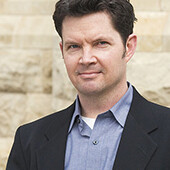Since there is very little any given individual can do to address climate change, there is a problem drawing a line from collective responsibility to individual responsibility. Fortunately, philosopher Garrett Cullity has a solution for morally motivating individuals.
How do we assign moral responsibility for climate change? We can all probably agree that as a country, the United States is responsible to some extent. After all, it emits a lot of carbon, has the ability to pay for solutions, and knows it should be doing something about it.
But what about individual American citizens? Climate change is a collective phenomenon. It's going to happen—or not—regardless of what any particular person does. Individuals may not want to emit carbon, but they don't have much choice about their participation in the overall system.
Our guest today, Garrett Cullity, sees a paradox here. Although it's easy to trace the empirical relationship between individual carbon emissions and systemic climate change, he thinks it's not so easy to track the moral relationship between individual and collective responsibility for climate change.






